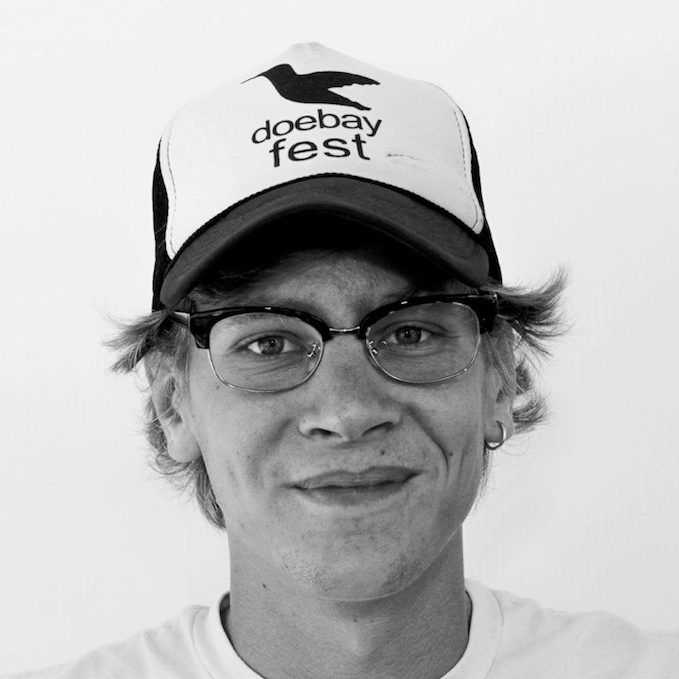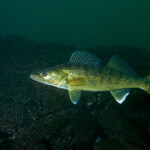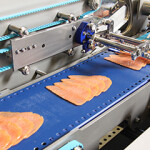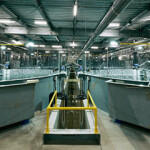Cooke faces tough questions on cusp of Washington ban
It has not been a great six months for Cooke Aquaculture, the Canadian fish farming company responsible for a Atlantic salmon net-pen farm collapse off of Cypress Island, in Washington state.
A half-year after the collapse, Washington has moved to ban Atlantic salmon fishing outright. A bill passed both houses of the state’s legislature in February, a move that could cost Cooke – the largest salmon-farming company in the state – tens of millions of dollars.
On Wednesday, 28 February, some of the country’s leading marine scientists penned an open letter to Washington’s elected officials, calling on them to rescind the legislation. The scientists include Linda A. Chaves, a retired senior advisor on seafood and industry issues and National Aquaculture Coordinator for NOAA; John Forster, the former president of Stolt Sea Farm Washington, Inc.; Robert N. Iwamoto, the retired director of the office of management and infor-mation at NOAA’s Northwest Fisheries Science Center and one-time chief science officer for NOAA; and Conrad Mahnken, also a former NOAA national aquaculture coordinator.
“We call on our esteemed elected representatives to delay any decisions regarding the future of salmon farming in Washington until the scientific community, represented in this state by some of the world’s leading aquaculture and fisheries scientists and researchers in the fields of fish culture, genetics, nutrition, and fish behavior, has had an opportunity to present science in a clear and objective light – rather than in a climate fueled by fear and propaganda,” they wrote.
However, their eleventh-hour plea may not be enough to overcome intense and widespread antipathy toward Cooke inside the state (both the Senate and House bills passed by wide margins, with broad bipartisan support). And the extreme to which public opinion has shifted begs the question of whether the fallout of the escape was greater than it would have been had Cooke’s initial response been more forthcoming and empathetic.
Immediately after the collapse of the fish net pens, the company blamed the incident on “exceptionally high tides and currents coinciding with this week’s solar eclipse.” While there was in fact an eclipse that week, there had been significantly higher tides at other points in the year.
A report commissioned by the state investigators showed that the actual cause of the net’s collapse was thousands of pounds of mussels, kelp, and other debris that had latched onto the netting and weakened the pen’s integrity.
After the escape, Cooke assured Washingtonians – particularly those who rely upon Pacific salmon for their livelihoods – that the escaped fish were no threat to the native salmon habitat and would quickly die off. Cooke also initially misrepresented the number of fish that had escaped, claiming that the number was around 100,000, when in reality it was closer to 250,000, according to the state’s report.
Cooke's assurances were first called into question in December, when nearly 100 days after the escape, half a dozen Atlantic salmon were landed more than 42 miles up the Skagit River. Experts said that if the escaped salmon were in the Skagit, there was a high probability they were also in neighboring rivers as well, such as the Nooksack and the Stillaguamish.
In an appearance on local television in February, Cooke CEO Glenn B. Cooke spoke out regarding the predicament in which the company that bears his name finds itself. Cooke called the state’s move to ban Atlantic salmon an “overreaction,” compared the proposed ban to “something you would hear in the Soviet Union,” and said that were the ban to go through, “good working people [would be] out of jobs.”
He also cast aspersions on the state report, saying that the mussels and debris that accumulated on the nets could have grown after the collapse but before the investigators documented the site.
“We believe the cages were in good shape, the moorings were in good shape,” he said.
Seeking a bargain, Cooke offered several compromises in exchange for a second chance, throwing out ideas such as raising only female salmon so that in the event of another escape, the fish would not be able to reproduce. Drawing attention to the fact that most global fishing quotas are decreasing, and advocating against importing fish from other countries like Norway, Scotland, and China, Cooke highlighted the important role he believes aquaculture should play in the United States.
But Cooke’s intervention may have come too late in the game to make a difference. Assuming the Washington State House and Senate can hash out minor discrepancies between the two similar bills they have already passed, the ban on non-native aquaculture will go to Governor Jay Inslee’s desk, and Inslee is expected to sign the bill into law. The governor has endorsed the bill, calling Atlantic salmon farming “a risk that is intolerable.” He also slammed Cooke for its “pronounced lack of responsibility” relating to August’s spill.
Comments made by everyone from the governor to local residents quoted local media revealed that residents of the Pacific Northwest – and especially the Seattle area – never fully embraced Atlantic salmon aquaculture in the region, and the question has emerged as to whether Cooke’s unrepentant response to the disaster exacerbated public misgivings against the industry.
In response, Cooke spokesperson Joel Richardson said that the company was not prepared for the widespread disparagement by public officials of Cooke as a company or salmon farming as an industry following the August collapse of its Cypress Island net pen structure. Since the August incident, Cooke has sought to be fully transparent and responsive to all stakeholders having an interest in protecting Washington’s native salmon stocks, Richardson said. He also termed the August fish escape a “regrettable accident.”
Richardson cast the troubles his company finds itself in as a jingoistic attack on a “foreign” company, pointing out that the state did not seek bans of companies or industries in the past after pipeline explosions, refinery accidents, oil spills, or floods of raw sewage.
“Unlike those accidents involving domestic companies or agencies, not one human was injured and not a single wild fish was killed by the accident occurring at the company’s Cypress facility,” Richardson said.
In their open letter, Chaves, Forster, Iwamoto, and Mahnken dismiss any scientific basis for a ban on non-native aquaculture.
“We strongly urge Members of the House of Representatives and the Senate to not ‘throw out the baby with the bathwater’ by dealing a fatal blow to an industry – salmon farming – that is now producing millions of metric tons of nutritious salmon, worth billions of dollars, around the world,” they wrote.
But the defenders of the industry, seeking to salvage what they could for the larger aquaculture industry, may have once again been undercut by Cooke, which has threatened to bring a request for arbitration under the rules of NAFTA. The trilateral trade agreement requires governments in Canada, Mexico, and the United States to treat foreign investors as favorably as domestic investors. Cooke said it will pursue a claim of up to USD 76 million (EUR 61.8 million), which is the value it places on its investment in its aquaculture facilities in Washington, plus damages.
The United States has never lost such a case, so the outcome will be interesting to watch, if the situation gets to that point. However, Glenn Cooke, who in a relatively short time has built a global seafood empire worth nearly USD 1.5 billion (EUR 1.2 billion) in sales in 2017, also doesn’t like to lose.
It’s a mindset that has got him far in the world. But it might end up costing him – and the seafood industry overall – dearly in Washington.






Share